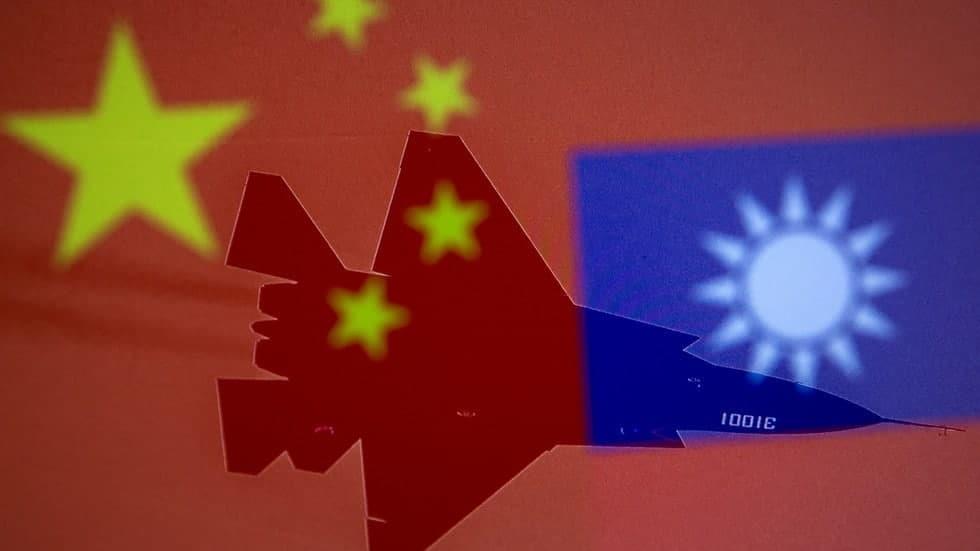BEIJING, Aug 17 (RT) - Beijing’s state-run Global Times newspaper has warned Taiwan that the US “abandonment” of Afghan allies should be a lesson, as the disputed island would be left to fend for itself and “collapse in hours” in a war with China.
Taiwan’s Democratic Progressive Party (DPP) leaders must keep a “sober head” and advocates for secession from China should “wake up from their dreams,” the English-language newspaper said on Monday.
“From what happened in Afghanistan, they should perceive that once a war breaks out in the Straits, the island’s defense will collapse in hours, and the US military won’t come to help,” Global Times said in an editorial. “As a result, the DPP authorities will quickly surrender, while some high-level officials may flee by plane.”
Just such a scenario has played out in Afghanistan since President Joe Biden announced in April that the US military would withdraw from the country by September 11. Biden later moved the deadline up to the end of August, but even before the process could be completed, the country’s US-backed government collapsed. Taliban fighters overran Afghan security forces in an overwhelming blitzkrieg, capped by their capture of Kabul on Sunday, after President Ashraf Ghani fled the country with bags of cash in tow.
“The best choice for the DPP authorities is to avoid pushing the situation to that position,” Global Times said. “They need to change their course of bonding themselves to the anti-Chinese mainland chariot of the US. They should keep cross-Straits peace with political means, rather than acting as strategic pawns of the US and bear the bitter fruits of a war.”
The article was accompanied by an illustration of a bald eagle, representing the US, leading Taiwanese President Tsai Ing-wen toward a hole in the ground. The newspaper likened the chaos in Kabul to the 1975 fall of Saigon, when US embassy staffers were evacuated by helicopter, just as happened again in Afghanistan on Sunday.
Global Times said the US has a long history of abandoning its allies, from betraying imperial France after the Revolutionary War and abandoning Kurdish allies in Syria in 2019, to fleeing Kabul as Afghan defenses collapsed. “Is this some kind of omen of Taiwan’s future fate?” the newspaper asked, adding that while Tsai and other DPP leaders downplayed the Afghan crisis, “they must have known better in secret, that the US is not reliable.”
The Biden administration clearly judged that the Afghanistan occupation had become too costly, despite the country’s strategic importance, and decided it could invest its resources more effectively to maintain US hegemony, Global Times said. Taiwan’s geopolitical value is no greater than that of Afghanistan, the newspaper added, and the US would have to pay a “huge price” to intervene in a war with China.
“Once a cross-Straits war breaks out while the mainland seizes the island with forces, the US would have to have a much greater determination than it had for Afghanistan, Syria and Vietnam if it wants to interfere,” Global Times said. And relative to Afghanistan, the US would have a “deeper hopelessness” for victory. Notably, the newspaper repeatedly said “once a war breaks out” with China, and not “if.”
The Global Times article was on the same wavelength as social media chatter in recent days amid the US evacuation and Taliban advance. “This is a fiasco of epic proportions,” Timur Kuran, a professor at Duke University in North Carolina said on Monday on Twitter, citing New York Times columnist Bret Stephens. “Every ally – Taiwan, Ukraine, the Baltic states, Israel, Japan – will draw the lesson that it is on its own in the face of its enemies.”
Other observers, such as Newsmax host Steve Cortes, said Biden’s handling of the Afghan crisis will embolden China to seize Taiwan. “China now knows that it has a free hand in Afghanistan, Hong Kong and Taiwan,” former assistant Treasury secretary Monica Crowley tweeted. “Compromised Biden really delivered.”
Taiwan has been ruled by descendants of the Chinese nationalists who fled defeat in the civil war on the mainland in 1949 and declared a “Republic of China” in exile. Though the island has sought a level of independence and self-governance from the mainland, Beijing maintains that Taiwan is still Chinese territory under the ‘One China’ policy.





